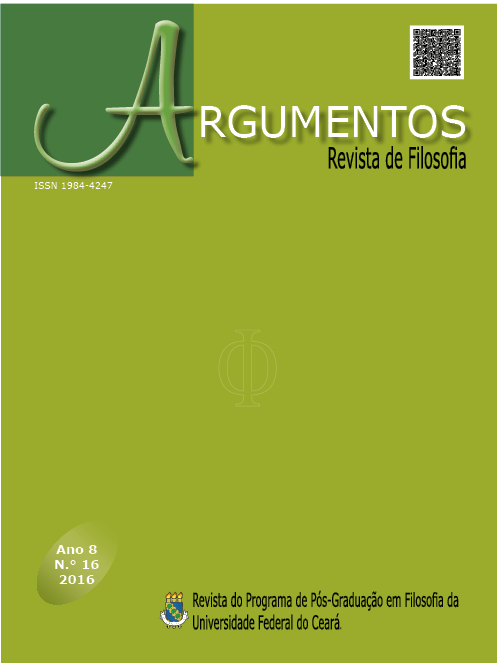Distinctions between Aristotelian and Darwinian teleology and their overcoming by the theory of extended synthesis
Keywords:
Teleology. Evolutionism. Synthetic Theory. Aristotle. Darwin.Abstract
In this article, we will investigate the main features of Aristotelian and Darwinian teleology to show how the extended synthesis theory seeks to overcome them. The conceptual investigation of the teleological approach of Aristotle can contribute to the understanding of the nature of Darwinian evolutionism and its late developments. In this sense, we will review the central concepts of the teleological aspects of these theories, in order to present the impact that a philosophical approach has on the understanding of the elements that support such a position. Considering the peculiarities that these perspectives present in relation to the teleological element intrinsic to them, it is also necessary to elucidate the different ways in which it is used. In this way, it will be possible to distinguish the specific character in which teleology appears in Darwinian evolutionism and to what extent it surpasses that of Aristotle in terms of a naturalistic perspective. The final point of the paper will be to show how the theory of extended synthesis establishes an explanation of nature that has no type of teleology in its explanation of natural phenomena.Downloads
Published
Issue
Section
License
Argumentos magazine is licensed under an International Creative Commons Attribution License.
The Magazine uses CC BY inclusion
1) The authors retain the copyright granted to the magazine or the right to initial publication, with the work regularly licensed under the Creative Commons Attribution, which allows the sharing of the work with acknowledgment of authorship and initial publication in this magazine.
2) The authors are authorized to contract additional applicable contracts, for non-exclusive distribution of the version of the work published in this journal (for example, publication in the institutional repository or as a chapter of the book), recognition of authorship and initial publication in this journal.
3) Authors are authorized and encourage to publish and distribute their work online (for example, in institutional repositories or on their personal pages) at any time before or during the editorial process, as they can generate productive changes, as well as increase the impact and reference of published work.




.jpg)










._._3.png)
1.jpg)
._._._.png)
